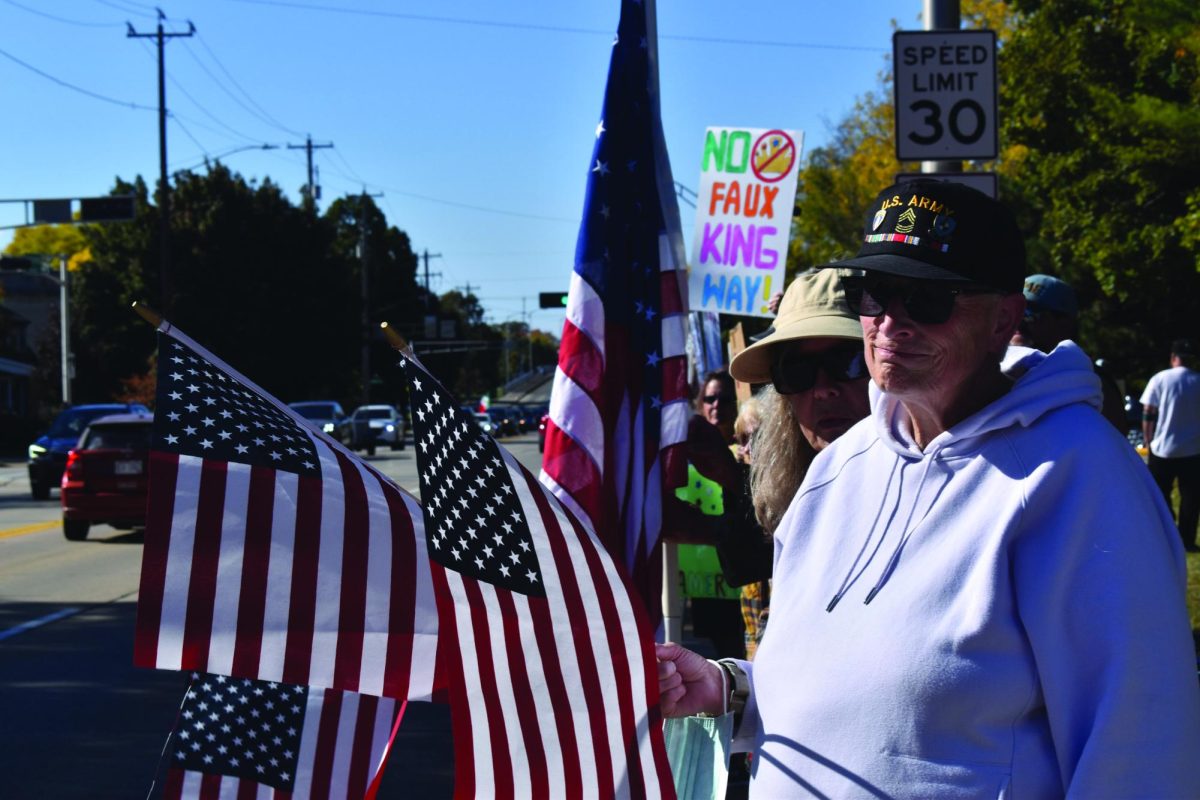
International women scholars from UW Oshkosh’s faculty in science, technology, engineering and mathematical fields discussed their perspective on conducting research international as part of a panel for International Women’s Day on March 8.
The panel was put on by the Model United Nations and included Dr. Angela Gray Subulwa, Dr. Stephanie Spehar and Martha Barhouse from UWO, who discussed their fields of study.
Barhouse is an electrical engineer and said she has known what it is like to be the only women in a STEM field.
“My first school that I went to in Chile, I was the only girl in engineering,” Barhouse said. “I was very unhappy at that school, and my father encouraged me to go the States for engineering. I went to school in California thinking it would be different, but when I got there, there was only one other woman. It was very discouraging at times.”
Barhouse said she used her discouragement to try and figure out why there was a lack in female presence in STEM fields.
“Part of my job is teaching future and current elementary school teachers how to teach math to kids,” Barhouse said. “We’ve learned that learning math doesn’t necessarily come down to IQ, but a want and an effort to do well in math.”
Barhouse said she became interested in electric engineering when she was a child, watching her father work on anything that needed to be fixed.
“My family left Chile when I was six months old so that my father could study aerospace engineering in Austin [Texas],” Barhouse said. “The thing about engineers of any kind is that they think they can fix anything. Nothing was broken for long. I would help my dad put old cars back together, learning how things worked.”
Barhouse said her passion about her work is to inspire women to go into STEM fields, and it begins with having role models.
“We see that girls usually do better in math and science in middle school, but once they get into high school we see that girls fall behind the boys,” Barhouse said.
“We don’t know necessarily why. There is a statistic that girls go into STEM fields because they know someone in that field. If we have more women for girls to look up to, then more women will join.”
Spehar said the reason she got into anthropology and primate behavioral ecology was because of the role models in her field.
“I was alway interested in animal behavior as a kid,” Spehar said. “Jane Goodall was always one of my role models growing up and because I saw someone like me in that field, I thought I could always do it.”
Spehar said her field may have more women than other STEM fields, but women are still the minority.
“The field of primate behavioral ecology has more women than other STEM-related area, and I believe a lot of that has to do with Jane Goodall,” Spehar said. “There still are more men and often I have been the only woman out doing research, which can create some interesting situations.”
Spehar said her work has led her to some amazing places and has offered her opportunities around the globe.
“I have gotten to work on conserving the Wehea Forest, where a lot of native primates live and has been cut down for palm oil which is used in a lot of products,” Spehar said. “It has led to me working with the Nehas Liah Bing people of Indonesian Borneo. They have helped me with my research and I have gotten to know their culture.”
Subulwa works in geography and urban planning and she said she has done a lot of her researching in southeastern Africa at many refugee camps.
“What I have learned working at these refugee camps is that most places hosting refugees take on the same socioeconomic climate,” Subulwa said.
Subulwa said one of the most interesting parts of her research is predicting what the future holds about different refugee camps.
“When refugees decided to go home, the settlements just disintegrate,” Subulwa said. “Some refugee settlements are prolonged though, and you have generations that have lived and were born there. What do you do when problems aren’t solved 40 years later?”
UWO junior Hallie Cook said the panel proves just how influential it is to have female role models in these fields.
“I think it is very important to have women teaching others in these fields,” Cook said. “Like they said, it’s more likely to have a woman want to be in a [STEM] field if they see another woman in that particular field. It is just more encouraging for all.”













